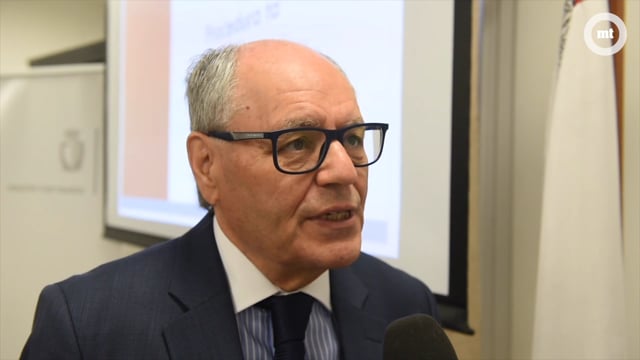[WATCH] Companies servicing the government now able to offset tax bill against money owed
It is hoped that the new offsetting procedure will allow the government and the private sector to have more liquidity


Companies that offer services to the government will be able to offset payment to one government department against money owed to it by another under a new offsetting scheme announced by the Finance Minister Edward Scicluna this morning.
Addressing a press conference launching the new procedure, Scicluna noted that the new system was something that has been requested of the government for a long time, and one which was promised by the previous administration.
“I say this not only to show how this is a government that delivers but also to acknowledge that it wasn’t something easy to implement,” Scicluna said.
The minister explained that the scheme was the culmination of a long period of discussion between various government departments and other stakeholders.
The agreement, he said, required a considerable amount of “goodwill” on the part of all concerned parties.
Under the new scheme, companies who are owed money by the government for services rendered will be able to use this balance to offset payments, such as VAT or income tax payments owed to the government.
The scheme will only apply to payments greater than €10,000, and it is hoped that it will improve both the government and private sector’s liquidity.
“We’re talking about liquidity which is essentially the oil that moves the machine and which is important for both government and businesses,” Scicluna said.
Like any other entity, the government needed to pay expenses such as salaries, while companies needed liquidity to continue their operations.
“It’s like oxygen for a diver, without it companies can’t continue working,” he said.
Scicluna said that while companies sometimes had an interest in delaying payments like their tax bill, this was not the case for the government.
He explained that there was a difference between cash basis and accrual accounting and that as such if a government procured a service in one year, it is still added to the books, even if payment is affected the following year.
The minister pointed out that determining what was owed in tax was often a complicated matter, especially in instances where a company has fallen behind and started to accumulate interests and fines.
On the other hand, he said there were instances were payments owed to a company were delayed because of disputes about the quality of the service rendered or because they might have been pending.
Scicluna acknowledged that there would certainly be mistakes and “teething problems” in the initial period, but did say he was convinced that a workable solution had finally been found.
The measure, which was announced in the last budget after having been included in the Labour Party’s electoral manifesto, will come into force this Friday.
Mark Borg from the budget office, explained that the scheme would be available to companies on a voluntary basis, and will be open to companies, partnerships and those who are self-employed.
Any payments owed to the government will be able to be offset under the scheme.
As of Friday, Borg said, an application will be available on the Finance Ministry website.
For an application to be accepted, the government creditor and debtor must be the same legal person, meaning that personal tax bills can’t be offset against payments owed to a company the same person owns.
Applications will be first be vetted with a process of reconciliation carried out before an agreement between the two parties is entered into.
There will also be a cut off date after an agreement is reached and after which no payments can be affected between the two parties.
Each government department will have an appointed person who will evaluate and process applications.
















.jpg)






